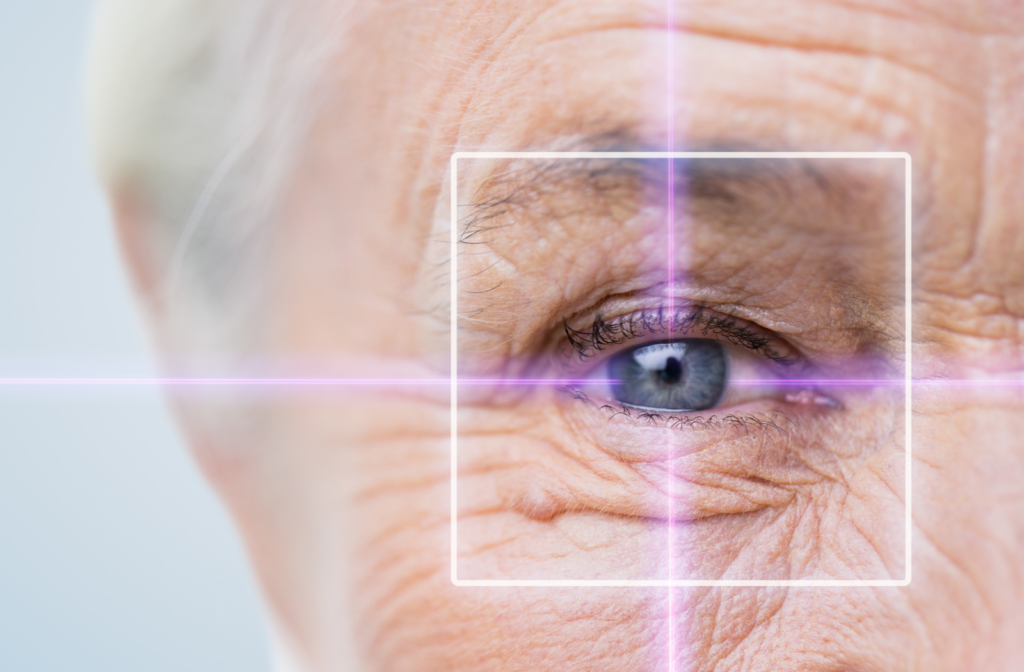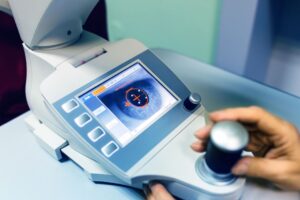Laser eye surgery has revolutionized the way we correct vision problems, providing a safe and effective solution for those with impaired eyesight. This innovative procedure not only improves vision but also enhances overall quality of life. By freeing individuals from the constraints of glasses and contact lenses, laser eye surgery can have a profound impact on their daily activities, self-confidence, and independence.
Understanding Laser Eye Surgery
Before delving into the benefits and considerations of laser eye surgery, let’s first examine the science behind this remarkable procedure. Laser eye surgery, also known as refractive surgery, involves reshaping the cornea—the clear front portion of the eye—to correct vision problems such as nearsightedness, farsightedness, and astigmatism. By altering the cornea’s curvature using advanced laser technology, laser eye surgery allows light to properly focus on the retina, resulting in clearer vision.

The Science Behind Laser Eye Surgery
At the core of laser eye surgery lies a sophisticated process that utilizes excimer lasers to remove microscopic amounts of tissue from the cornea. This precise and controlled removal of tissue allows the surgeon to sculpt the cornea, correcting refractive errors and improving the eye’s ability to focus. The excimer laser emits a cool ultraviolet light that breaks the molecular bonds of the corneal tissue, vaporizing it without generating heat. This unique characteristic of the excimer laser ensures that the surrounding tissue remains unharmed during the procedure.
During the surgery, the patient’s eye is numbed with eye drops, and a specialized device called a microkeratome or femtosecond laser is used to create a thin flap on the cornea. For LASIK, this flap is then lifted to expose the underlying corneal tissue, which is reshaped using the excimer laser. Once the cornea has been sculpted to the desired shape, the flap is carefully repositioned, acting as a natural bandage to promote healing.
Different Types of Laser Eye Surgery
Several variations of laser eye surgery exist, providing tailored treatments to suit individual needs. LASIK (Laser-Assisted In Situ Keratomileusis) is the most common and widely recognized form of laser eye surgery. It combines the use of an excimer laser to reshape the cornea with the creation of a corneal flap using a microkeratome or femtosecond laser. This flap creation allows for a quicker recovery time and minimal discomfort for the patient.
Another popular option is PRK (Photorefractive Keratectomy), which is suitable for individuals with thinner corneas or other eye characteristics that may preclude them from undergoing LASIK. In PRK, the surgeon removes the thin outer layer of the cornea, called the epithelium, before reshaping the underlying corneal tissue with the excimer laser. Although the recovery period for PRK is longer compared to LASIK, it is an effective alternative for those who may not be suitable candidates for LASIK.
Additionally, SMILE (Small Incision Lenticule Extraction) is a newer technique that utilizes femtosecond laser technology to reshape the cornea. Unlike LASIK and PRK, SMILE does not require the creation of a corneal flap. Instead, a small incision is made in the cornea, and a lenticule, a small disc-shaped piece of tissue, is removed to reshape the cornea and correct the refractive error. This minimally invasive procedure offers a quicker recovery time and potentially less dry eye symptoms compared to other laser eye surgery techniques.
The Benefits of Laser Eye Surgery
Now that we understand the basics of laser eye surgery, let’s explore the numerous ways in which this procedure can improve an individual’s quality of life.
Improved Vision and Independence
Perhaps the most obvious benefit of laser eye surgery is the significant improvement in vision that can be achieved. Patients often report experiencing clearer, sharper, and more vibrant vision following the procedure, leading to enhanced visual acuity in their daily activities. Individuals no longer rely on corrective eyewear, enabling them to participate in various sports, outdoor activities, and even simple tasks such as reading without the hassle of glasses or contact lenses. This newfound independence can greatly improve confidence and overall well-being. Learn more about the benefits of laser eye surgery at https://health.ucdavis.edu/eyecenter/laser_surgery/lasik_what_can_expect.html
Lifestyle Enhancements Post-Surgery
Without the need for glasses or contact lenses, laser eye surgery can also enhance an individual’s appearance, allowing their natural beauty to shine through. Additionally, individuals can enjoy the convenience of not having to constantly clean, maintain, or replace their eyewear. Imagine waking up in the morning and being able to see the world clearly without reaching for glasses—laser eye surgery can make this a reality.
Furthermore, laser eye surgery offers not just improved vision, but also a potential boost in productivity and career opportunities. With enhanced visual clarity, individuals may find it easier to excel in their professional lives, whether it be through increased efficiency at work or the ability to pursue new career paths that were previously hindered by poor eyesight. The confidence gained from clear vision can open doors to new possibilities and challenges, propelling individuals towards greater success.
Another significant advantage of laser eye surgery is the long-term cost savings it can provide. While the initial investment in the procedure may seem daunting, the ongoing expenses of purchasing prescription eyewear, contact lenses, and solutions can add up over time. By opting for laser eye surgery, individuals can free themselves from these recurring costs and enjoy the financial benefits of improved vision without the continual need for expensive corrective aids. This financial freedom can lead to a more relaxed and fulfilling lifestyle, unburdened by the constraints of ongoing vision expenses.
Preparing for Laser Eye Surgery
Before undergoing laser eye surgery, it is essential to go through a thorough preparation process to ensure optimal results. This typically involves a consultation and evaluation with an experienced ophthalmologist.
Preparing for laser eye surgery goes beyond just the consultation and evaluation process. Patients are encouraged to educate themselves about the different types of laser eye surgery available, such as LASIK, PRK, or SMILE, to make an informed decision about which procedure best suits their needs and lifestyle. Understanding the intricacies of each surgery can help alleviate any anxiety or uncertainty leading up to the procedure.
Consultation and Evaluation
During the consultation, the surgeon will evaluate the patient’s eye health and determine their eligibility for laser eye surgery. They will thoroughly discuss the procedure, addressing any concerns or questions the patient may have. This consultation is also an excellent opportunity for patients to learn more about the surgeon’s experience and success rates.
Moreover, the consultation is a crucial time for patients to discuss their expectations for the surgery openly. Whether the goal is to reduce dependency on glasses or contact lenses, improve a specific eye condition, or enhance overall vision, clear communication with the surgeon is key to achieving desired outcomes.
Pre-Surgery Guidelines
Prior to the surgical procedure, patients are usually advised to discontinue wearing contact lenses for a specified period. This allows the cornea to return to its natural shape, ensuring accurate measurements are taken during the evaluation. It’s important to follow all pre-surgery guidelines provided by the surgeon to ensure the best possible results.
In addition to discontinuing contact lens use, patients may be instructed to refrain from wearing eye makeup, lotions, or perfumes on the day of surgery. These substances can increase the risk of infection during the procedure and may interfere with the laser’s effectiveness. Following these guidelines diligently can help minimize potential complications and contribute to a successful surgery outcome. To read more about pre surgery requirements click here.
The Laser Eye Surgery Procedure
Now that the patient has undergone the necessary preparation, it’s time to explore what happens during the laser eye surgery procedure itself.
Before the actual surgery begins, the patient will be asked to lie down on a reclining chair. Anesthetic eye drops will be administered to ensure the eye remains numb throughout the procedure. A small device called a speculum will be used to hold the eyelids open, preventing blinking and ensuring the eye stays still.
What to Expect During Surgery
Laser eye surgery is typically performed as an outpatient procedure under local anesthesia. The surgeon will create a small flap in the cornea, either using a microkeratome blade or a femtosecond laser. This flap is then lifted, allowing access to the underlying corneal tissue. The excimer laser is then used to precisely reshape the cornea according to the predetermined measurements. Finally, the corneal flap is repositioned, acting as a natural bandage.
During the reshaping process, the excimer laser emits cool ultraviolet light pulses, removing microscopic amounts of tissue from the cornea. This precise reshaping allows light entering the eye to focus correctly on the retina, improving vision. The entire procedure usually takes around 15 minutes per eye, depending on the complexity of the vision correction needed.
Post-Surgery Care and Recovery
Immediately following the surgery, patients may experience mild discomfort, such as dryness, itchiness, or a gritty sensation. The surgeon may prescribe eye drops or medications to alleviate these symptoms and aid in the healing process. It is crucial to follow the post-surgery care instructions provided by the surgeon to ensure a smooth recovery. Most individuals experience gradual vision improvement over the following days and weeks.
After the surgery, patients are usually required to wear protective shields over their eyes while sleeping to prevent accidental rubbing or pressure on the eyes. It’s essential to attend follow-up appointments with the surgeon to monitor the healing progress and ensure the eyes are responding well to the treatment. Avoiding strenuous activities, swimming, or using eye makeup during the initial recovery period is recommended to prevent any complications and promote optimal healing.
Potential Risks and Complications
Every surgical procedure carries some degree of risk, and laser eye surgery is no exception. However, the majority of patients experience minimal complications and are delighted with their improved vision. It’s important to understand the potential risks involved in order to make an informed decision.

Common Side Effects
Following laser eye surgery, patients may experience temporary side effects such as dry eyes, glare, halos around lights, or mild discomfort. These side effects are usually short-lived and subside as the eyes heal. The surgeon will provide guidance on how to manage and alleviate these symptoms.
How to Mitigate Risks
To minimize the risk of complications, it is crucial to select an experienced and reputable surgeon. Thoroughly researching and choosing a surgeon with a track record of successful surgeries can significantly reduce the likelihood of adverse outcomes. Additionally, following all pre-surgery and post-surgery instructions provided by the surgeon is paramount to ensuring a safe and successful procedure.
In conclusion, laser eye surgery offers a transformative solution for individuals seeking improved vision and enhanced quality of life. This procedure not only corrects vision problems but also provides newfound independence, convenience, and confidence. By understanding the science behind laser eye surgery, preparing diligently, and selecting a skilled surgeon, one can embark on a journey towards experiencing the countless benefits that laser eye surgery has to offer.
Related : The Best Laser Eye Surgery Options Available in Sydney


